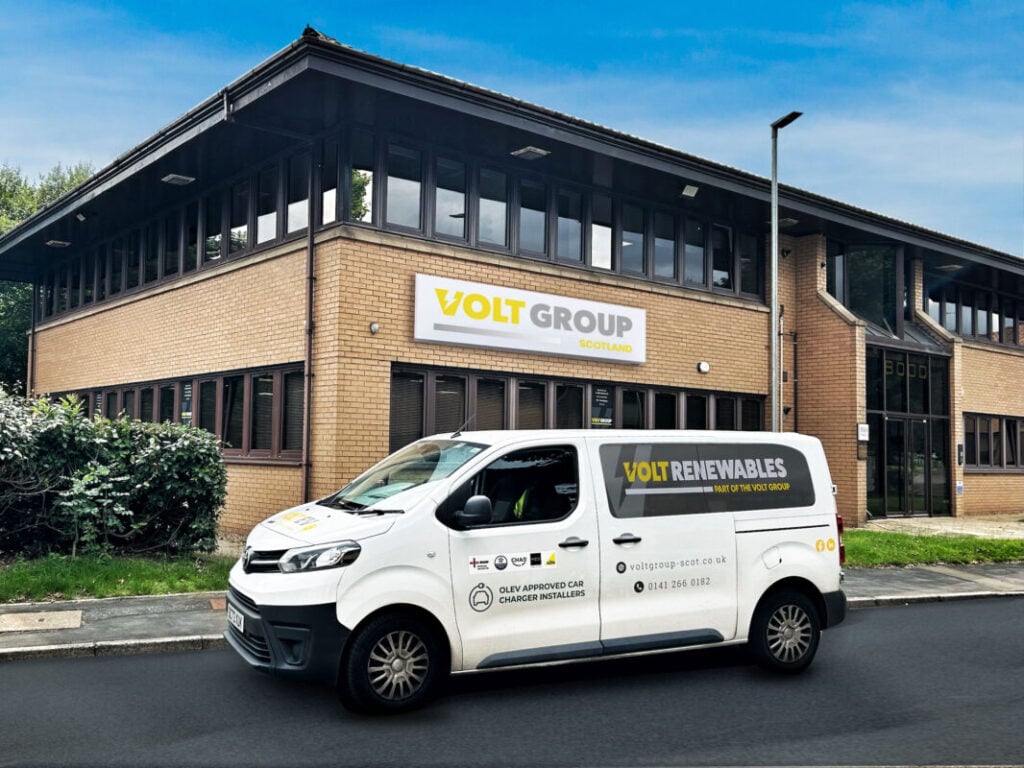
Volt Group Scotland, a multi-trade service company, has partnered with HDM Energies, a Yorkshire-based renewable energy company, to offer rooftop solar installations for commercial properties with zero capital expenditure.
Through HDM Energies’ ‘Energy for All’ scheme, Volt Group Scotland will supply, install and maintain solar PV systems for businesses, property portfolio owners and local authorities across Scotland.
The installation comes at no cost to the businesses, with the energy produced by the solar systems provided under a power purchase agreement (PPA); the financing option enabled by HDM Energies means businesses can purchase the electricity generated by the solar panels at a low, fixed-rate while receiving maintenance support from Volt Group Scotland.
According to Volt Group and HDM, the initiative is designed to help companies “seamlessly and affordably” transition to sustainable energy solutions.
Colin MacLean, renewables manager of Volt Group Scotland, commented: “We are excited to collaborate with HDM Energies to expand our services and offer more enterprises across Scotland, regardless of their size or budget, the opportunity to access clean, renewable energy through a power purchase agreement.”
The electrical installation company has provided domestic and commercial rooftop solar PV systems across Scotland since 2019.
Dan Rogers, CEO of HDM Energies, added: “There is tremendous potential for businesses to harness renewable energy, and we are thrilled to bring the ‘Energy for All’ scheme to Scotland. Partnering with Volt Group ensures that businesses here can now access solar solutions with expert installation and year-round maintenance, without the financial burden of upfront costs.”
The Scottish solar outlook
Trade body Solar Energy Scotland recently registered discontent with the Scottish government’s move to implement a new energy efficiency standard inspired by the international Passivhaus standard.
The consultation on the rules is based on Passivhaus Classic, which Solar Energy Scotland says would be obsolete before it ever enters force; Passivhaus Classic has been superseded by ‘Plus’ and ‘Premium’ forms, which call for mandating the installation of renewable energy in domestic and non-domestic buildings, including solar thermal systems for producing hot water.
In fact, the consultation does not mention solar power at all. This would leave Scotland far behind its neighbours, with European standards mandating solar panels on all newbuild properties and England set to introduce the same rule.
Scotland has been a contentious area for solar, with Scottish net zero minister Mairi McAllan announcing on 18 April that the Scottish government would not reach its 2030 emissions target.
In June, trade association Scottish Renewables called on the government to reinstate solar PV and energy storage in the Home Energy Scotland (HES) grant and loan scheme, arguing that the move to remove the technologies from the scheme undermined Scotland’s solar sector.
Helen Melone, head of heat and solar at Scottish Renewables, said: “The Scottish government’s decision to remove domestic rooftop solar from the HES grant and loan scheme strikes a blow to the future of Scotland’s solar sector.
“The HES grant and loan scheme has been popular with Scotland’s solar supply chain, helping to deliver the extensive pipeline of projects it is currently working through.”
Melone concluded: “Domestic solar is hugely popular in Scotland, and there is a long waiting list for installations. However, with no incentive for domestic rooftop solar, this work will inevitably dry up and leave these companies with uncertain futures.”

